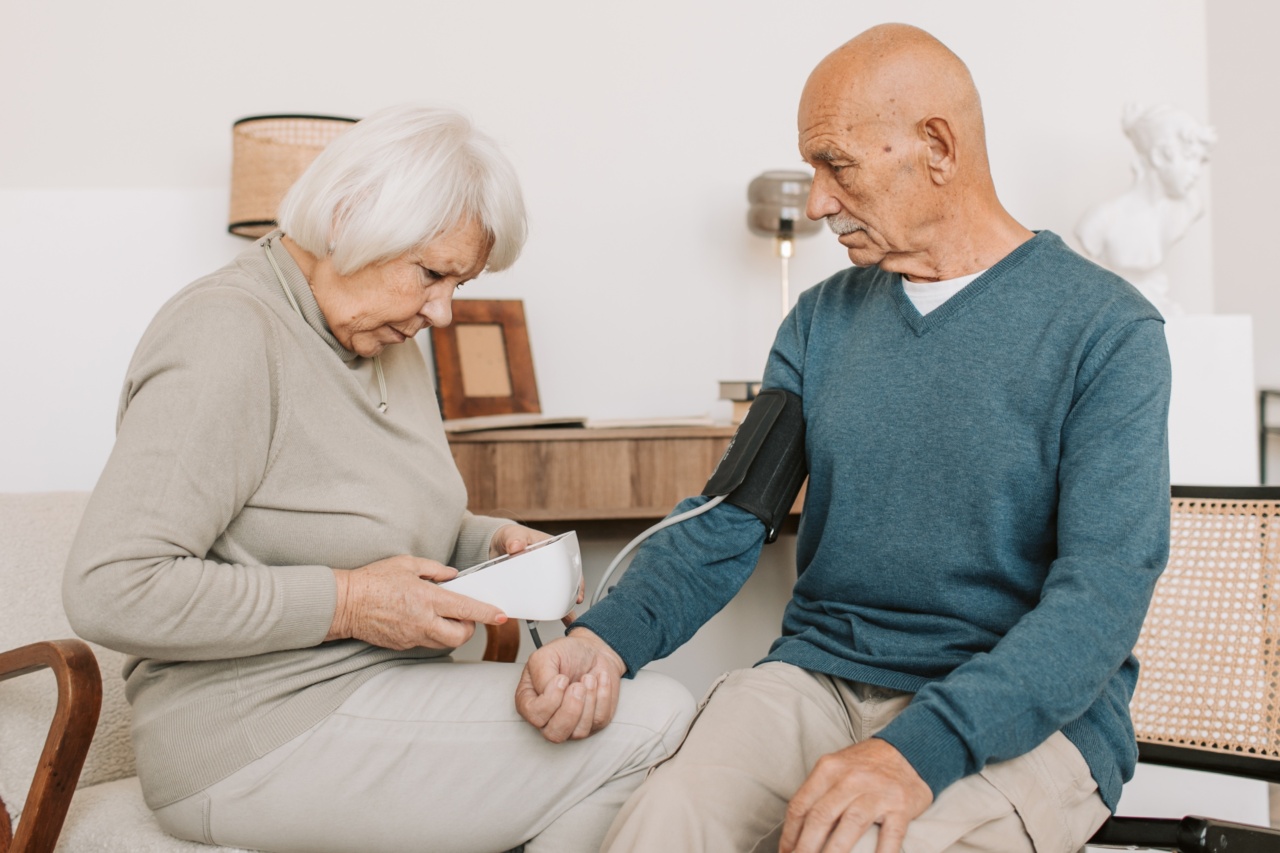As we age, our bodies undergo many changes that can affect our blood pressure. It’s important for seniors to monitor their blood pressure regularly and keep it within healthy levels to prevent heart disease and stroke.
Here are some guidelines to help seniors manage their blood pressure:.
1. Know your numbers
The first step in managing blood pressure is to know your numbers. Blood pressure is measured with two numbers: systolic (the top number) and diastolic (the bottom number). A normal blood pressure reading is below 120/80 mmHg.
Elevated blood pressure is between 120-129/less than 80 mmHg. High blood pressure (hypertension) is 130/80 mmHg or higher. Seniors should know their blood pressure numbers and aim to keep them within healthy levels.
2. Consult with your healthcare provider
If you have high blood pressure, it’s important to work with your healthcare provider to manage it. They may recommend medications, lifestyle changes, or a combination of both.
Your healthcare provider can also help you determine if you have other risk factors for heart disease and stroke, such as high cholesterol or diabetes, and develop a personalized treatment plan.
3. Follow a heart-healthy diet
A healthy diet can help seniors manage their blood pressure. A heart-healthy diet includes fruits, vegetables, whole grains, lean proteins, and low-fat dairy products.
It’s also important to limit sodium (salt) intake to less than 2,300 milligrams per day. Seniors should also limit their alcohol intake to no more than one drink per day for women and two drinks per day for men.
4. Exercise regularly
Regular exercise can help lower blood pressure and improve overall health. Seniors should aim for at least 150 minutes of moderate-intensity aerobic activity per week, such as brisk walking or cycling.
Strength training exercises can also help improve muscle mass and lower blood pressure.
5. Manage stress
Stress can cause temporary spikes in blood pressure, which can be harmful over time. Seniors should find ways to manage stress, such as meditation, deep breathing exercises, or yoga.
It’s also important to get enough sleep and practice good sleep habits.
6. Quit smoking
Smoking can damage blood vessels and increase the risk of heart disease and stroke. Seniors should quit smoking if they currently smoke. Your healthcare provider can provide resources and support to help you quit.
7. Monitor your blood pressure at home
Seniors should monitor their blood pressure at home, in addition to regular check-ups with their healthcare provider. Home blood pressure monitors are easy to use and can provide valuable information about your blood pressure trends over time.
Your healthcare provider can recommend a home blood pressure monitor and provide instructions on how to use it.
8. Take medications as prescribed
If you have high blood pressure and are prescribed medications, it’s important to take them as prescribed. Skipping doses or stopping medications can increase the risk of complications.
If you experience side effects or have concerns about your medications, talk to your healthcare provider.
9. Stay hydrated
Dehydration can cause blood pressure to rise, so it’s important for seniors to drink plenty of water throughout the day. Aim for at least eight glasses of water per day, and more if you are physically active or in hot weather.
10. Get regular check-ups
Regular check-ups with your healthcare provider can help identify any changes in blood pressure or other risk factors for heart disease and stroke.
Seniors should schedule regular appointments with their healthcare provider and follow their recommendations for managing their blood pressure.





























